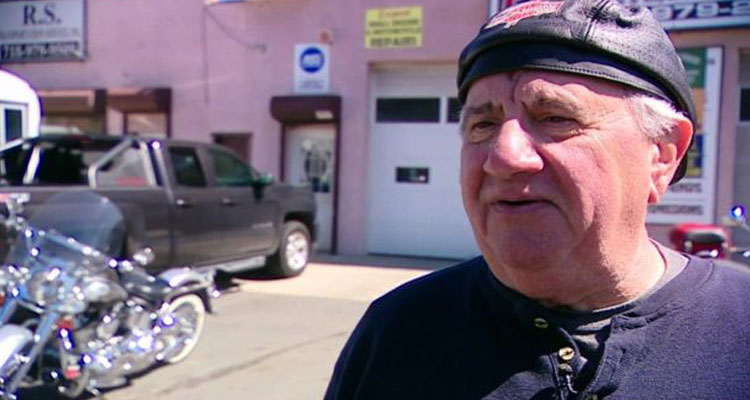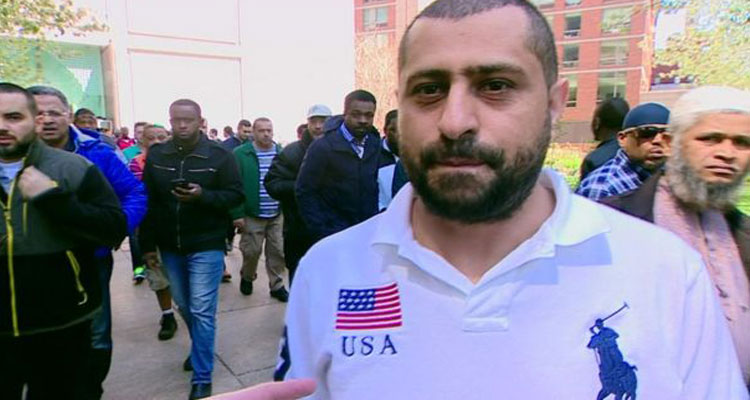By Nick Bryant, BBC News, April 19, 2016
His name is emblazoned all over the city. On luxury condominiums, high-rise residential buildings, office blocks and hotels, and at some of New York’s most prestigious addresses, Fifth Avenue, Wall Street, Park Avenue, the United Nations Plaza and even the ice rink in Central Park.
TRUMP, often spelt out in gold capital letters in a font called Stymie Bold, is ubiquitous.
But as well as being the place where he built his corporate and personal brand, the politics of Donald Trump can also be traced back to New York.
Manhattan was the site not only of the destruction of the Twin Towers in September 2001 but also the collapse of Lehman Brothers in September 2008.
All these years on from 9/11 and the financial crash, those massive convulsions continue to shape the contours of American politics. In this mad as hell election, much of Donald Trump’s success has come from exploiting fears about Islamist terrorism and frustrations about the economy.
Make America Great Again is a slogan that resonates for voters who feel that the country has been in retreat for the past 15 years.
Just take the ferry from the southern tip of Lower Manhattan to Staten Island, where you’ll find a blue-collar stronghold of Donald Trump. In Staten Island, I came across Pete Schiro, whose auto-repair business has yet to rebound from the great recession. Like so many other working Americans, his income has flat-lined.

“It’s terrible, it really is,” he sighs with a thick New York burr, as he works on one of his cars. “I have a business, and you see it every day. People come in to repair their cars and it’s always, ‘I haven’t got it right now. I’m just trying to make ends meet.’ And I can understand that. The economy is going down the tubes. We’re becoming a second-rate country.”
So can Trump turn it around, I ask.
“I think he can. I think we’ve got a good guy going there.”
You get a very different sense of Trumpism when you visit the Islamic Cultural Center in uptown Manhattan, the first mosque to be erected in the city. At the packed Friday prayers, one young worshipper came dressed in a Ralph Lauren shirt with the American flag on the front and the words UNITED STATES on the back. Another wore the uniform of the New York Police Department.
But Trump’s call for the monitoring of American mosques and his proposed ban on foreign Muslims from entering the country has made them feel like outsiders in their homeland.

“This is the land of God, not the land of Trump,” shouted a man, as he left the mosque. “He’s trying to do what he’s wants to do to get votes,” said a young man. “He’s trying to pander to his audience.” As for the man who came wearing that Ralph Lauren shirt, he called Trump a racist: “I love America. I’m Muslim, and I love America.”
It’s not just the questioning of their patriotism and allegiance that angers so many Muslims. What also upsets them is the level of support for Trump’s hard-line policies. A recent poll suggested that 51% of voters support the idea of temporarily shutting the door on Muslims. To many American Muslims, then, Trump is a product of an Islamophobia that has lurked near the surface since 9/11.
Even as he dominates the polls, it is worth remembering that many New Yorkers are highly embarrassed by him. He’s been pilloried by the New York Daily News, which has turned its Trump-themed front pages into something of a tabloid art form. The paper has called him a clown, the anti-Christ, brain-dead and a “Mad Man”. He’s also been a godsend to New York’s late-night comedians.
What’s also been noticeable during the New York primary is his absence from the city. He’s tended to campaign upstate in blue-collar cities like Buffalo, rather than take the stage in his hometown. Staten Island is the only one of New York’s five boroughs where he has held an election rally. Evidently, the fear of protests has dissuaded him from holding them in Manhattan where he lives, in Queen’s where he was born, in the Bronx where there is a large African-American and immigrant population, and Brooklyn where the politics are more left-leaning.
At a GOP gala last week at a hotel on 42nd Street, which attracted a large and vocal protest outside, he had to be spirited in via a side entrance. I happened to be the only journalist to watch his entry, and when I asked him what he thought of the raucous welcome from his fellow New Yorkers, he was uncharacteristically reticent. And this was his neighbourhood, just around the corner from his penthouse in Trump Tower.
Many of the Republicans who attended the black-tie gala were unhappy with the choice of candidates before them, and many were openly hostile to Trump. New York Republicans tend to be more moderate, business-orientated and less socially conservative than their cohorts in the south and Midwest.
Even as the GOP has moved to the right, the city has remained the home of many Rockefeller Republicans. They have tended to back moderates like Rudy Giuliani and George Pataki, both of who campaigned as pro-choice candidates. Trump’s rhetoric, both on immigration and more recently abortion, puts him a long way to the right of that tradition. But that makes political sense.
The central reason why New York Republicans have not prospered in the post-civil rights era of American politics is because they have been deemed to be too liberal. Trump knows the party has become more Barry Goldwater than Nelson Rockefeller, the last Republican who lived on Fifth Avenue to run for the presidency.
Trump will win the New York primary. The question is by what margin. Under the state’s primary system, delegates are not apportioned on a winner-take-all basis, so he needs a lop-sided victory to increase his lead over Ted Cruz.
Trump’s failure so far to fully grasp the intricacies of the delegate apportionment rules might yet prove his undoing, and contribute to him falling short of the 1,237 delegates needed to secure a first-ballot victory. It’s an understandable mistake for a political neophyte, but Trump has always claimed to be the master of the art of the deal. He has a granular knowledge of polling data, but not, apparently, the rules of the GOP. Perhaps he has always left it to lawyers to study the fine print.